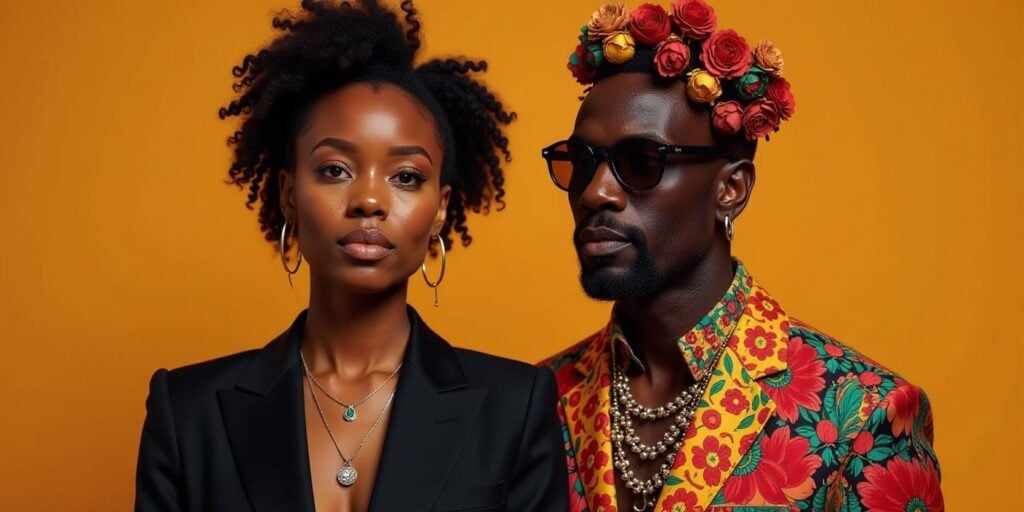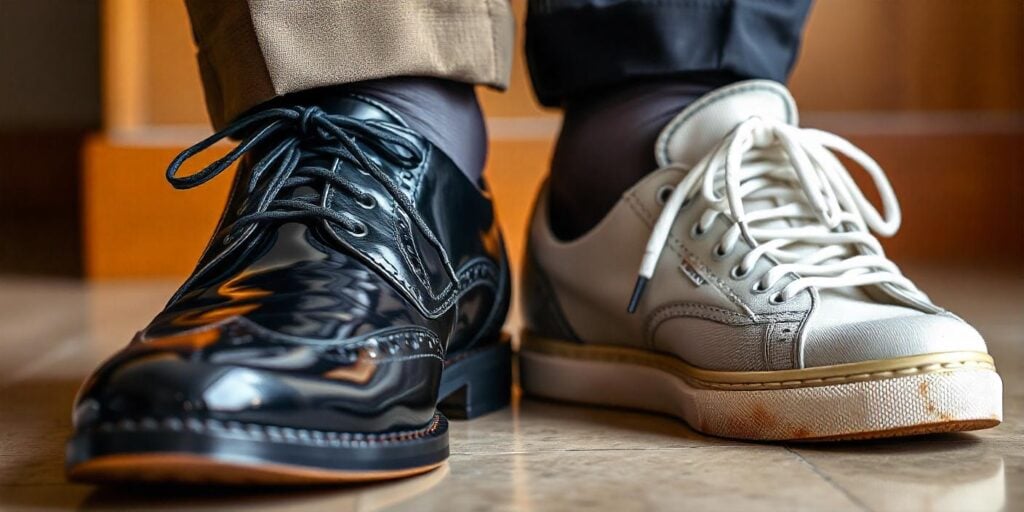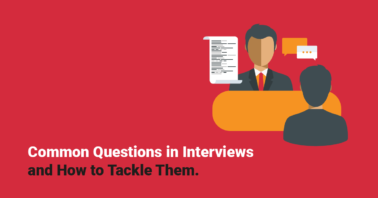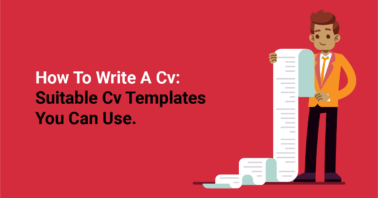Your first impression during a job interview is often made before you even say a word. How you dress says a lot about you—your professionalism, attention to detail, and whether you understand the company culture. Knowing what to wear, and more importantly, what not to wear, can make or break your chances of landing that job. Let’s dive into some common attire mistakes and how to dress for success in any interview setting.
Table of Contents
1. Too Casual Can Cost You

Dressing too casually is one of the most common mistakes job seekers make, especially for more formal industries like finance, law, or corporate roles. Even if the company has a relaxed dress code, showing up in jeans or sneakers sends the message that you’re not taking the interview seriously.
What to Wear Instead: Stick to business or business-casual attire depending on the role. For corporate interviews, men should opt for a suit or a dress shirt and tie, while women can go for a pantsuit or a formal dress.
2. Avoid Overly Flashy Accessories

Loud jewelry or extravagant accessories can be distracting during an interview. It might make you stand out—but not in the way you want. The focus should be on what you’re saying, not on your outfit.
Tip: Keep it simple. A clean, understated look can go a long way in making a good impression.
3. Dress for the Industry
What’s appropriate for a startup might not fly at a big corporate firm, and vice versa. For example, creative industries (like media or design) may be more lenient with relaxed styles, whereas banking or legal sectors expect a more traditional appearance. Misunderstanding the company’s culture by overdressing or underdressing can hurt your chances.
Pro Tip: Always research the company’s dress code beforehand. You can often get clues from their social media pages or the company’s careers section. If in doubt, err on the side of being more formal than too casual.
4. Don’t Forget Grooming

No matter how well-dressed you are, poor grooming can ruin your entire appearance. This includes unkempt hair, wrinkled clothes, or overly strong colognes/perfumes, which can leave a negative impression on the interviewer.
What to Do: Pay attention to the little things. Ensure your clothes are clean, ironed, and fit well. Subtle grooming improvements like a fresh haircut or clean nails can go a long way.
5. Beware of Too Much Color

Bright colors can be eye-catching but in the wrong way. While it’s tempting to wear something that stands out, avoid neon or extremely bright outfits, which can be distracting. Neutral tones like navy, black, or gray are safe choices for interviews, as they exude professionalism.
Tip: Save the bold fashion choices for later, after you’ve got the job. For the interview, stick with classic colors and patterns. You can always add a subtle pop of color with a tie or a scarf for some personality.
6. Footwear Matters

Your shoes can say a lot about you, so make sure they’re saying the right things! Avoid wearing sandals, flashy heels, or sneakers to an interview. The wrong footwear can ruin even the most professional outfit.
What to Wear Instead: Choose polished, closed-toe shoes like oxfords, loafers, or low-to-mid heels. Comfort matters too, so pick shoes that you can walk confidently in.
7. Avoid Wearing Anything Too Trendy
While it’s fun to follow the latest trends, an interview is not the best time to flaunt avant-garde fashion. Trendy clothes might make you seem less serious or professional, especially if they don’t align with the company’s culture.
What to Do: Stick to timeless, professional attire. If the job is in a creative field, you can add a touch of personality without going overboard.
Wrapping Up: The Power of Dressing Right
Your attire plays a huge role in your interview performance. Dressing appropriately shows that you respect the interview process and understand the company’s culture. While fashion trends come and go, professionalism never goes out of style.
By avoiding these common mistakes and dressing appropriately for the industry, you can walk into any interview feeling confident and well-prepared.
For more career tips and job opportunities, check out BrighterMonday Uganda.





